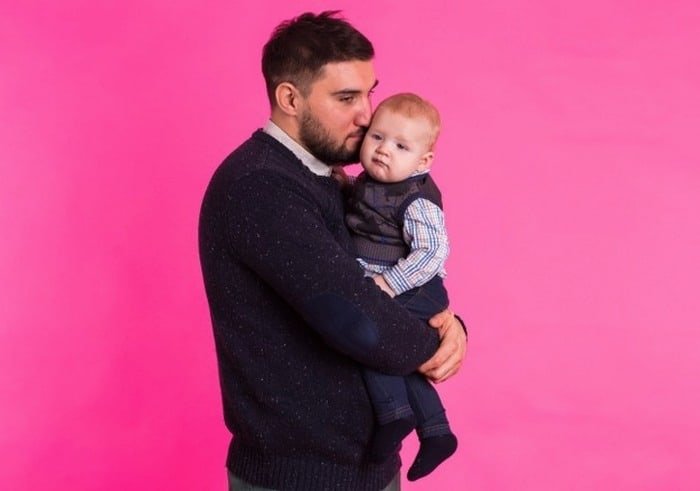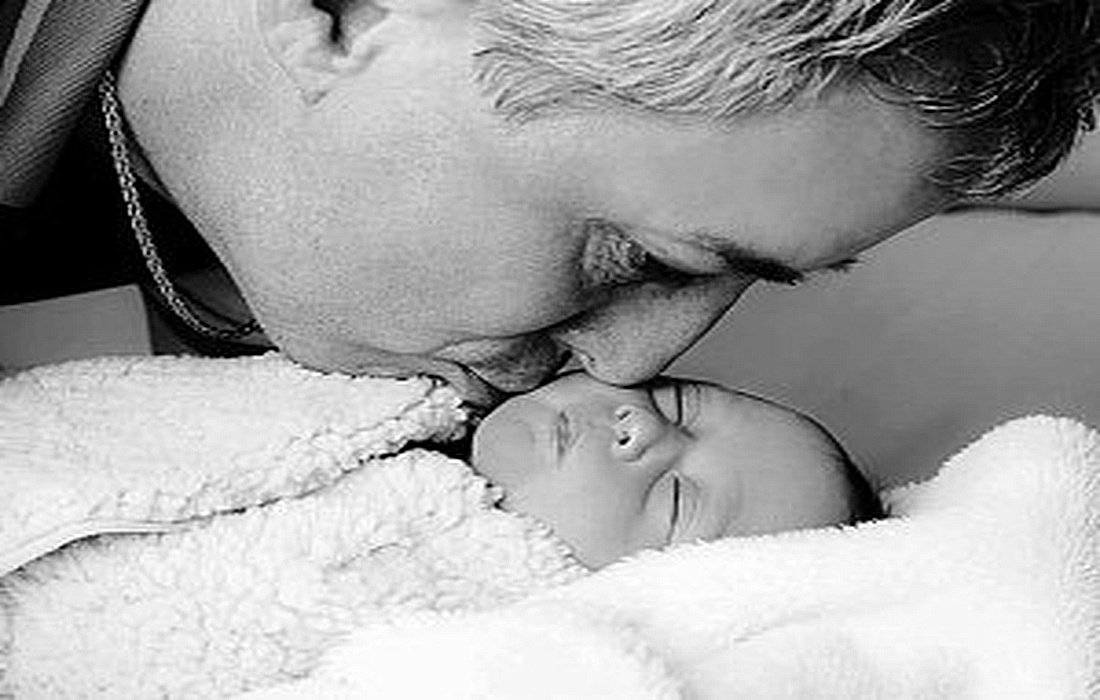Changes that occur in men’s bodies and brains after becoming fathers
Mood and hormonal fluctuations,stressand numerous unexpected changes in the body; these are the changes thatpregnancyand childbirth have on a woman’s life. Some believe that the birth of children does not affect the life of fathers since they do not give birth, yet studies have shown that fathers experiencehormonaland behavioral changes when they first see their newborn.In this interesting section ofSelMagz,we will learn about the changes in men’s bodies and minds during
their partner’s pregnancy and after childbirth.Behavioral and physical changes
in men after having children1. Testosterone levels
decrease:Testosterone is the male hormone responsible for developing male reproductive functions and motivating men to seek partners. Research shows that men with higher testosterone levels are more attractive to women. However, it seems that testosterone levels in new fathers drop by up to 34%. Scientists believe this decrease occurs because new fathers focus more on their families and are less concerned with attractiveness to the opposite sex. Furthermore, the lower the testosterone levels in fathers, the more interest and affection they show for their children, leading to greater involvement in childcare.Decrease in testosterone levels after fatherhood
2. Oxytocin levels increase:

Scientists have studied the connection between a new father’s involvement in parenting activities and their hormone levels, leading to interesting results. Fathers who actively played with their children had higher oxytocin levels compared to fathers who spent less time with their children. Oxytocin is a hormone responsible for creating feelings of calm, love, positivity, and strong bonds between individuals, and naturally increases in women during pregnancy and after childbirth.
Increase in oxytocin levels after fatherhood
3. The brains of new fathers will also undergo changes:

Studies involving MRI scans of 16 new parents show that the same changes occurring in women’s brains also happen in men’s brains. Areas of the brain related to attachment, empathy, and the ability to bond with the baby showed more gray and white matter from week 12 to 16 of pregnancy compared to early pregnancy. Scientists believe these structural brain changes reflect the brain growth of parents during pregnancy.
Doctors believe that the brains of men who are about to become fathers work to ensure their ability to connect with their child, even if they themselves do not give birth.
Behavioral and physical changes in men after their child is born
4. Men may experience

postpartum depression:
Postpartum depression is a mood disorder that can arise from pregnancy and childbirth, often including feelings of sadness, hopelessness,anxietyand irritability. Researchers believe that postpartum depression is not solely women’s issue; studies indicate that about 10% of men who have recently become fathers also experience postpartum depression, which may be linked to the previously mentioned decrease in testosterone levels. Low testosterone can lead to lethargy and a disinterest in engaging in enjoyable activities.
Interestingly, women whose partners experience lower testosterone levels show fewer signs of postpartum depression and seem to benefit from increased emotional support from fathers with low testosterone, which, in turn, may reduce their risk of depression.ChildbirthChanges in men’s behavior after becoming fathers
Changes in men







